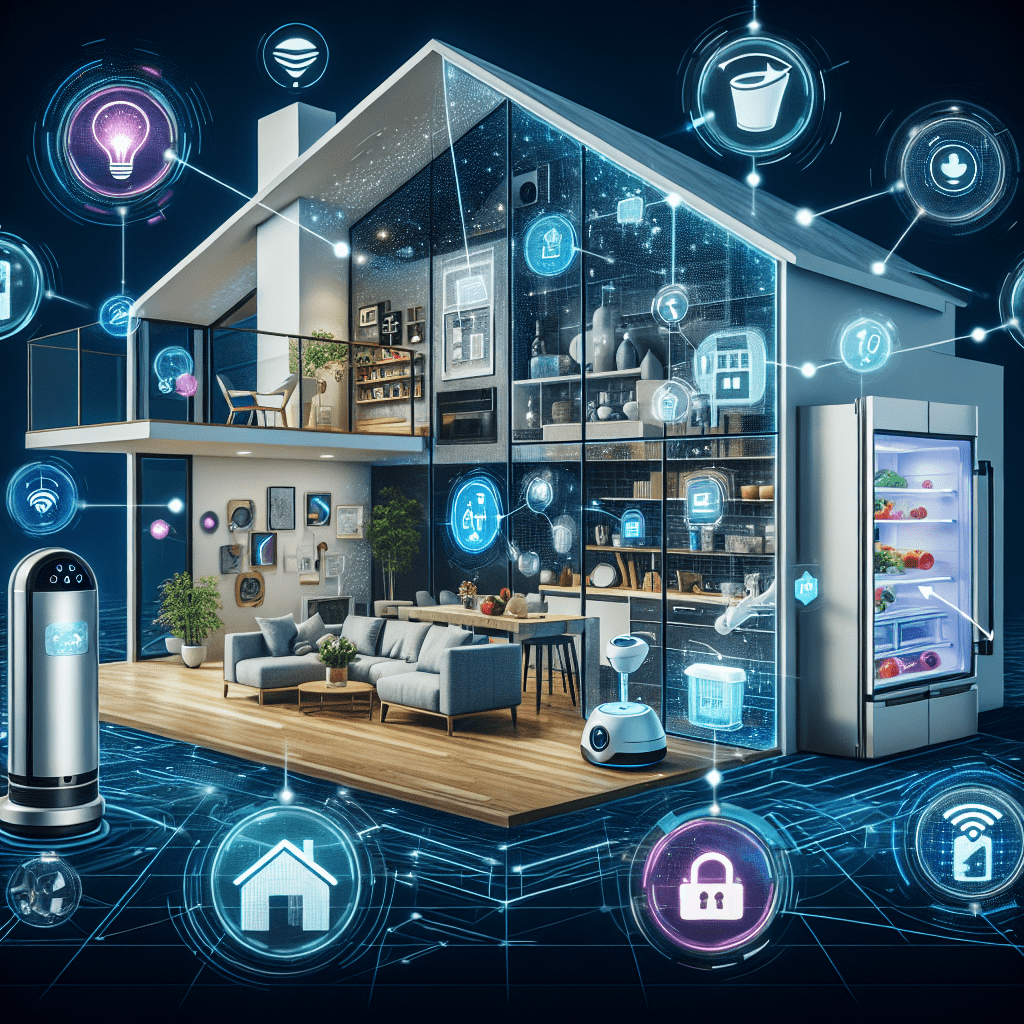Home automation, also known as smart home technology, is rapidly becoming a popular trend in the housing industry. With the advancement of technology, homeowners are now able to control and automate various aspects of their homes, making their lives more convenient and comfortable. From lighting and heating systems to security cameras and entertainment systems, home automation offers a wide range of services that enhance the quality of life for residents. In this article, we will explore the future of smart Home Services and how they are reshaping the way we live.
The Benefits of Home Automation
One of the key advantages of home automation is convenience. With the use of smart devices and applications, homeowners can control various functions of their homes remotely, allowing them to save time and effort. For example, they can turn on the lights before arriving home, adjust the thermostat to their preferred temperature, and even monitor their security cameras from anywhere in the world.
Another benefit of home automation is energy efficiency. By automating systems such as heating, cooling, and lighting, homeowners can reduce their energy consumption and costs. This not only benefits the environment but also leads to savings on utility bills in the long run.
Furthermore, home automation enhances security. Smart door locks, surveillance cameras, and motion sensors provide homeowners with peace of mind knowing that their homes are well-protected. They can receive real-time alerts in case of any suspicious activity, and even remotely grant access to trusted individuals.
The Future of Smart Home Services
As technology continues to advance, the future of smart Home Services looks promising. With the development of artificial intelligence (AI) and machine learning, smart devices will become more intelligent and predictive, making them even more efficient and user-friendly. For example, AI-powered voice assistants like Amazon Alexa and Google Assistant will be able to anticipate and fulfill homeowners’ needs without manual input.
Moreover, the integration of Internet of Things (IoT) technology in home automation systems will revolutionize the way devices communicate and interact with each other. This seamless connectivity will enable homeowners to create personalized smart home ecosystems that cater to their specific preferences and habits.
In addition, the rise of 5G technology will further enhance the capabilities of smart Home Services, enabling faster and more reliable communication between devices. This will result in smoother automation workflows and improved overall performance.
Conclusion
The future of smart Home Services is bright, with endless possibilities for innovation and advancement. Home automation offers numerous benefits, including convenience, energy efficiency, and security, that enhance the quality of life for homeowners. As technology continues to evolve, smart devices will become more intuitive and interconnected, creating seamless and personalized experiences for users. The integration of AI, IoT, and 5G technologies will further drive the evolution of smart Home Services, shaping the way we live and interact with our living spaces.
FAQs
1. What are the most popular smart home devices?
Some of the most popular smart home devices include smart speakers, smart thermostats, smart lights, smart security cameras, and smart door locks.
2. How secure are smart home systems?
Smart home systems are designed with security in mind, with features such as data encryption, secure authentication, and regular software updates to protect against cyber threats. It is important for homeowners to follow best practices such as using strong passwords and enabling two-factor authentication to further secure their smart home devices.
3. Are smart home devices easy to install and use?
Most smart home devices are designed to be easy to install and use, with user-friendly interfaces and step-by-step instructions. However, some devices may require professional installation for optimal performance, especially for more complex systems such as smart security systems and home automation hubs.
TIPS
- Research and compare different smart home devices before making a purchase to find the ones that best suit your needs.
- Set up routines and automation schedules to maximize the efficiency and convenience of your smart home system.
- Regularly update the software and firmware of your smart devices to ensure optimal performance and security.
- Consider investing in a smart home hub or controller to centralize and streamline the management of your smart home devices.
#Home #Automation #Future #Smart #Home #Services
